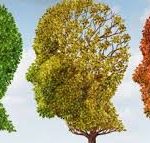
Use this page as a resource to start your research on the uses of, studied and reported health benefits of CBD.
Parkinson’s disease is a progressive nervous system disorder that affects nearly 1 million people in the U.S. Studies have shown marijuana can slow the disease’s progression and help patients manage the disease’s associated symptoms.
Overview of Parkinson’s Disease
Parkinson’s disease is a chronic, progressive disorder of the nervous system that causes the malfunction and death of nerve cells in the brain. Parkinson’s disease (PD) typically starts with a minor tremor and develops gradually, eventually causing stiffness throughout the body and slowing movement. Some neurons produce dopamine, a chemical that sends messages to the part of the brain that controls movement, and as these neurons die from Parkinson’s disease, the amount of dopamine decreases and movement is subsequently affected.
While the cause of Parkinson’s disease is unknown, genes and environmental triggers likely play a role. Specific genetic mutations have been identified and having a close relative with Parkinson’s increases chances of developing the disease. Exposure to certain toxins like herbicides and pesticides could also increase risk.
Symptoms associated with Parkinson’s disease include tremors, bradykinesia (slowness of movement), rigidity (stiffness) and postural instability. Tremors can occur in the hands, arms, legs, jaw and face. Parkinson’s disease is also commonly accompanied with depression, cognitive problems, swallowing problems, sleep problems, fatigue and pain. Psychosis, a severe impairment in thinking and emotion that causes one to lose contact with reality, can also occur.
There is no cure for Parkinson’s disease. However, treatments can help to improve symptoms. Medications can be used to help manage walking, movement and tremor problems by increasing or substituting for dopamine. Surgery may eventually be required to regulate certain regions of the brain.
Findings: Effects of Cannabis on Parkinson’s Disease
Evidence suggests that cannabis could potentially slow the progression of Parkinson’s by providing neuroprotective effects. The cannabinoids found in cannabis are able to suppress excitotoxicity, glial activation and oxidative injury that cause the degeneration of the dopamine-releasing neurons. In addition, they improve the function of cell’s mitochondria and activation of cellular debris clearance, further encouraging neuron health (More & Choi, 2015) (Garcia-Arencibia, Garcia & Fernandez-Ruiz, 2009) (Lastres-Becker & Fernandez-Ruiz, 2006) (Zeissler, et al., 2013). Researchers have found evidence that one specific cannabinoid found in cannabis, tetrahydrocannabinol (THC), helps in the treatment of Parkinson’s disease by assisting in the prevention of damage caused by free radicals and activating a receptor that encourages the formation of new mitochondria (Zeissler, et al., 2013). Another major cannabinoid found in cannabis, cannabidiol (CBD), has also demonstrated its ability to support the health of neural cells mitochondria, causing the researchers concluded that CBD should be considered as a potential therapeutic option in neurodegenerative disorders like Parkinson’s because of its neuroprotective properties (da Silva, et al., 2014) (Zuardi, 2008).
Research also shows that cannabis can help patients with Parkinson’s disease manage their symptoms. One study observed that after smoking cannabis, Parkinson’s disease patients saw significant improvements in motor disability and impairments, tremors, rigidity, bradykinesia, sleep and pain (Lotan, Treves, Roditi & Djaldetti, 2014). Additional studies have confirmed cannabis’ ability to reduce bradykinesia and tremors (Garcia-Arencibia, Garcia, Fernandez-Ruiz, 2009) (Lastres-Becker & Fernandez-Ruiz, 2006).
Significant improvements in well-being and quality of life scores were found in Parkinson’s disease patients that were given daily doses of CBD for one week (Chagas, et al., 2014). One case study found that patients treated with CBD, though they didn’t see significant improvements in motor measures or general symptoms, experienced prompt and substantial reductions in the frequency of REM sleep behavior disorder events (Chagas, et al., 2014). In one survey, despite only 4.3% of Parkinson’s disease patients responding that they used cannabis to treat their symptoms, it was ranked it as the most effective treatment option out of vitamins, prayer, massage, art therapy, music therapy and relaxation (Finseth, et al., 2015).
In addition, CBD may help with those Parkinson’s’ disease patients experiencing psychosis. Four weeks of CBD caused Parkinson’s disease patients with psychosis to experience a significant decrease in psychotic symptoms as evaluated by the Brief Psychiatric Rating Scale and the Parkinson Psychosis Questionnaire (Zuardi, et al., 2009).
The article above is from (dated 9/9/2016) http://www.medicalmarijuanainc.com/parkinsons-disease-medical-marijuana-research
Let’s Look At Some Studies:
Effects of cannabidiol in the treatment of patients with Parkinson’s disease: an exploratory double-blind trial.
J Psychopharmacol. 2014 Nov;28(11):1088-98. doi: 10.1177/0269881114550355. Epub 2014 Sep 18.
Chagas MH, Zuardi AW, Tumas V, Pena-Pereira MA, Sobreira ET, Bergamaschi MM, dos Santos AC, Teixeira AL, Hallak JE, Crippa JA.
Twenty one (21) subjects were assigned to three groups of seven subjects each who were treated with placebo, cannabidiol (CBD) 75 mg/day or CBD 300 mg/day. One week before the trial and in the last week of treatment subjects were evaluated with respect to motor and general symptoms score (UPDRS) and well-being and quality of life (PDQ-39).
No statistically significant differences were found in UPDRS scores. Despite the very small sample size, groups treated with placebo and CBD 300 mg/day had significantly different mean total scores in the PDQ-39 (p = 0.05). Significance is very much a factor of sample size, so this result is striking in itself. Findings suggest a possible effect of CBD in improving quality of life measures in PD patients with no psychiatric comorbidities.
Cannabis (medical marijuana) treatment for motor and non-motor symptoms of Parkinson disease: an open-label observational study
Clin Neuropharmacol. 2014 Mar-Apr;37(2):41-4. doi: 10.1097/WNF.0000000000000016.
- March 17, 2014
Inhaling whole-plant cannabis provides symptomatic relief in patients with Parkinson’s disease (PD), according to a scientific article published in the March/April edition of the journal Clinical Neuropharmacology. Investigators at Tel Aviv University, Department of Neurology evaluated Parkinson’s disease symptoms in 22 patients at baseline and 30-minutes after inhaling cannabis.
Researchers reported that inhaled cannabis was associated with “significant improvement after treatment in tremor, rigidity, and bradykinsea (slowness of movement). There was also significant improvement of sleep and pain scores. No significant adverse effects of the drug were observed.”
The researchers concluded that their study is “the first to report an amelioration of both motor and non–motor symptoms in patients with PD treated with cannabis. The study opens new venues for treatment strategies in PD especially in patients refractory to current medications.”
Cannabidiol can improve complex sleep-related behaviours associated with rapid eye movement sleep behaviour disorder in Parkinson’s disease patients: a case series
J Clin Pharm Ther. 2014 Oct;39(5):564-6. doi: 10.1111/jcpt.12179. Epub 2014 May 21
Chagas MH, Eckeli AL, Zuardi AW, Pena-Pereira MA, Sobreira-Neto MA, Sobreira ET, Camilo MR, Bergamaschi MM, Schenck CH, Hallak JE, Tumas V, Crippa JA.
The administration of cannabidiol (CBD) was found to control sleep disorders in patients who currently experience the symptoms of Parkinson’s disease as reported in the Journal of Clinical Pharmacy and Therapeutics. An international team of researchers from the University of Sao Paulo in Brazil and the University of Minnesota Medical School USA evaluated the ingestion of CBD by four Parkinson’s disease patients with REM sleep behavior disorder (RBD). This condition is characterized by nightmares and active behavior during dreaming.
Cannabidiol treatment reduced symptoms in each of the four subjects. Symptoms returned with the same frequency and intensity following subjects’ discontinuation of the cannabinoid.
Bottom Line
The CBD treatment options seems to be a good one to consider, especially if you are having significant challenges with functioning on a day to day basis. There is research on the use of CBD that address problems related to trauma, anxiety post traumatic stress – all of which lie at the core cause of neurological difficulties.
As with any natural treatment option, be sure to check with your healthcare provider to insure that use of CBD will not interfere with any treatments your doctor has prescribed for you. Do your own research as well. You do not necessarily need medical marijuana and the hassel that comes with it, CBD Hemp oil might be the perfect option for you.
Articles and Studies on Cannabidiol (CBD) and Parkinson’s Disease (PD)
- Effects of cannabidiol in the treatment of patients with Parkinson’s disease: An exploratory double-blind trial
- Prospects for cannabinoid therapies in basal ganglia disorders
- Evaluation of the neuroprotective effect of cannabinoids in a rat model of Parkinson’s disease: Importance of antioxidant and cannabinoid receptor-independent properties
- Cannabinoids provide neuroprotection against 6-hydroxydopamine toxicity in vivo and in vitro: relevance to Parkinson’s disease
- Cannabidiol can improve complex sleep-related behaviours associated with rapid eye movement sleep behaviour disorder in Parkinson’s disease patients
- Cannabidiol for the treatment of psychosis in Parkinson’s disease
- Symptom-relieving and neuroprotective effects of the phytocannabinoid Δ⁹-THCV in animal models of Parkinson’s disease
- Therapeutic potential of cannabinoids in CNS disease
- CB2 Receptors Activation Protects against Oxidative Stress and Neuroinflammation Associated Dopaminergic Neurodegeneration in Rotenone Model of Parkinson’s Disease
Last updated 9/12/2016


